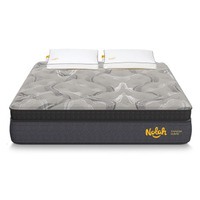Sleep, caffeine and sugar: 6 foods and drinks that can keep you up at night
We look at some popular foods and drinks that can effect your sleep at night
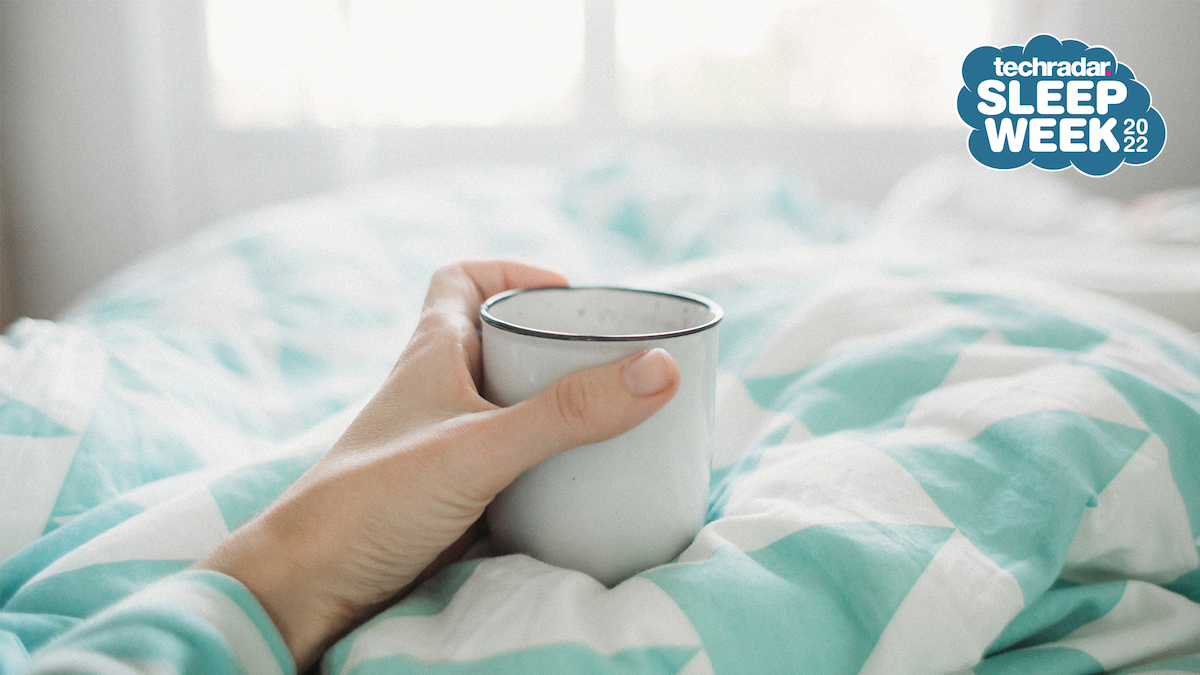
We are all aware that coffee and black tea stops you feeling sleepy (after all, that’s why we drink it), but what other foods and drinks are we consuming that might be interfering with our sleep at night?
For example, dark and milk chocolate both contain caffeine, and consuming alcohol, sugary foods and drinks before you sleep can each impact your shut-eye, as can a lack of dietary fibre.
So if you've fired up your sleep tracker and it's showing you that your sleep was less than optimal last night, it might be time to look at your diet to see if there are any culprits for your sub-par shut-eye. After speaking to a nutritionist about the different drinks and foods that help you sleep, we know there's a relationship between the two. If heat is keeping you awake, experts share how to sleep when it’s hot so you can drift off more comfortable.
Some people metabolise caffeine faster than other, and as we get older our efficiency at doing this decreases. According to the American Journal of Clinical Pathology, the average half-life of caffeine (the time it takes to break down) is around five hours. This means that you should have your last caffeinated drink or food around five hours before bed, though you may need to stop earlier if caffeine affects you more.
We sleep when a biological chemical called adenosine builds up in our brains, regulated by another chemical called melatonin (this sets our circadian rhythms). Caffeine blocks the receptors for adenosine in our brain and increases adrenaline, the chemical that gives us energy.
In our diet and drinks we often consume carbohydrates which contain sugars, both simple and complex, for energy. These play a role in sleep, with simple sugars being the body’s rapid source of energy when we are fatigued.
These are the sweet-tasting glucose, sucrose and fructose sugars in sweets, cakes, chocolates, sweet fruits and vegetables, and dairy and sweetened milks that give you a sugar high. Research by the Academy of Sleep Medicine shows that eating too many simple sugars at night can reduce sleep. Let's take a closer look at this now...
6 foods and drinks that can affect your sleep
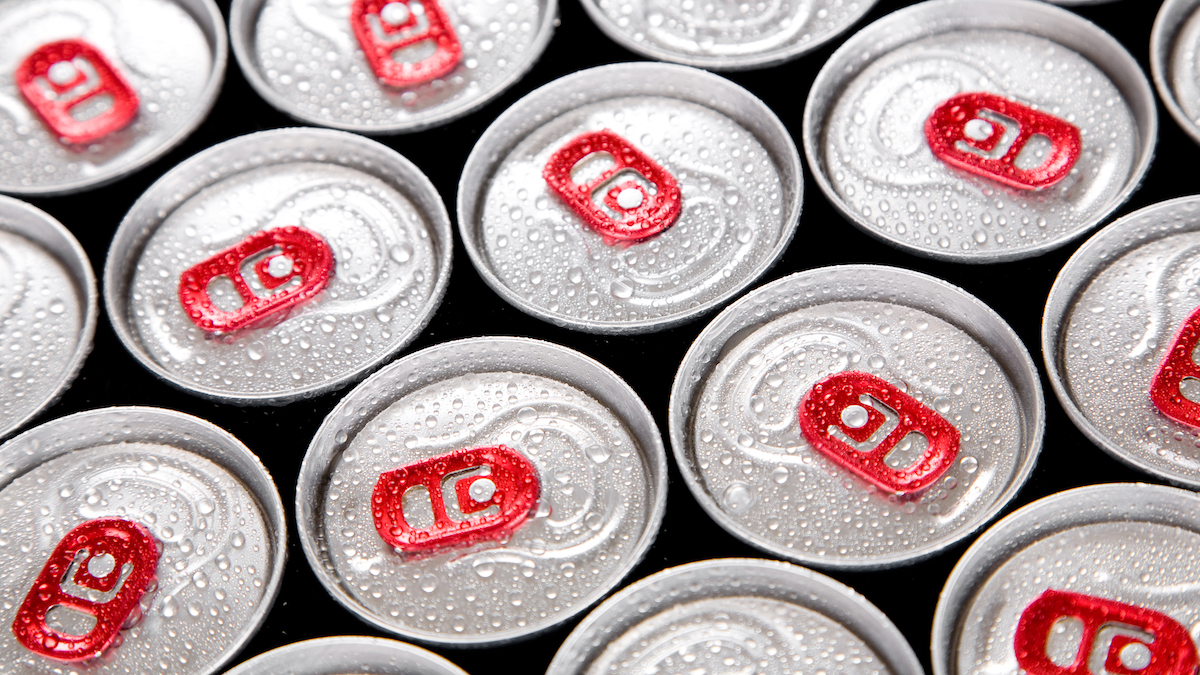
1. Sports drinks
Everyone knows that energy drinks give you, well, energy, but what you may not know is that high-sugar, caffeinated sports drinks can also impact sleep. Their high sugar content causes sugar lows, which make our bodies crave energy giving, high-carbohydrate foods, increasing our appetite.
Get daily insight, inspiration and deals in your inbox
Sign up for breaking news, reviews, opinion, top tech deals, and more.
Our brains respond to this sugar low with adrenaline, which impacts sleep. Additionally, the sugar low, energy crash, post-sugar high increases the likelihood that you'll reach for more caffeine, further impacting sleep.
2. A carb-free diet
Too many carbohydrates can derail a restful night’s sleep. However, too few dietary carbohydrates and our body pumps us with adrenaline energy to make us get up and get food.
Therefore, complex sugars such as dietary fibre and protein-rich foods, which take longer to break down and therefore give us a more sustained energy source, are the best for helping us to sleep.
In 'low fat' foods, the fat is often replaced with either high carbohydrates or sweeteners. Sweeteners can be up to 1000x sweeter than sugar and give us the same energy crashes that make us stressed and hangry, and they also impact sleep.
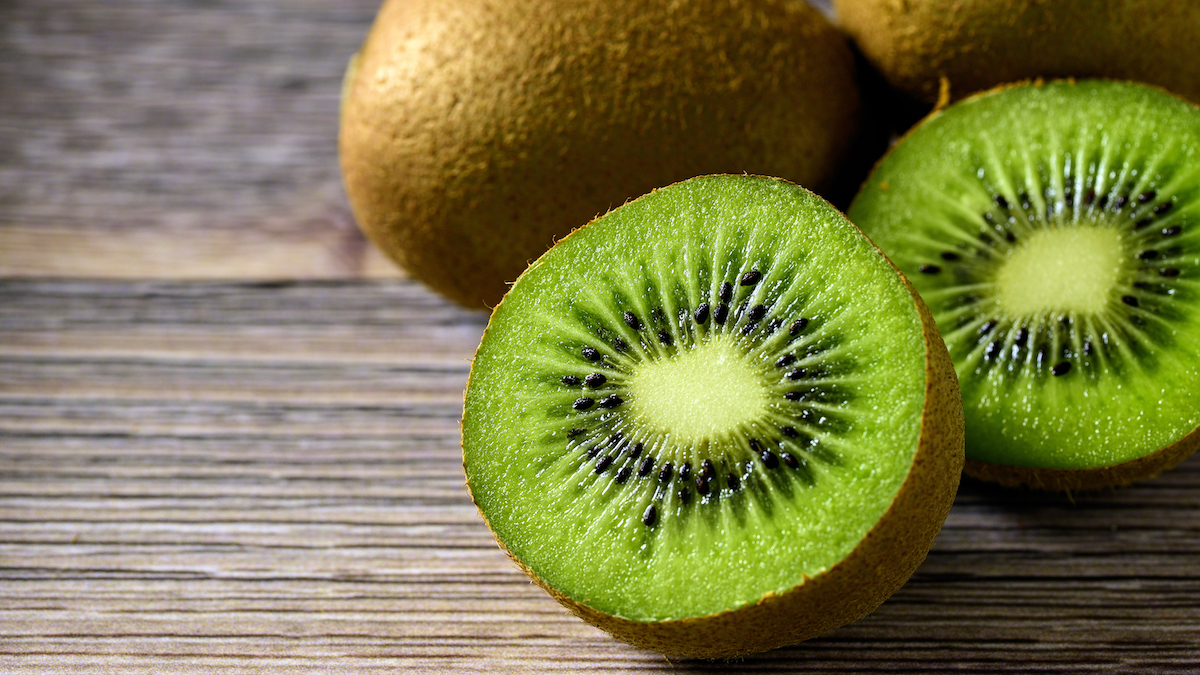
3. Low sugar fruits and vegetables
Vegetables like courgettes, cucumbers, leeks, broccoli, cauliflower, onions, tomatoes, artichokes, green beans, peas, carrots and fruits like berries, kiwis and lemons are perfect for helping you to sleep.
Not only are they complex carbohydrates, they also contain magnesium, a molecule involved in the synthesis of dopamine (our mood chemical), serotonin (the happiness chemical) and melatonin (the sleep regulator), helping us feel calmer and be more resilient to stressors. They also contain lots of fibre for gut health.
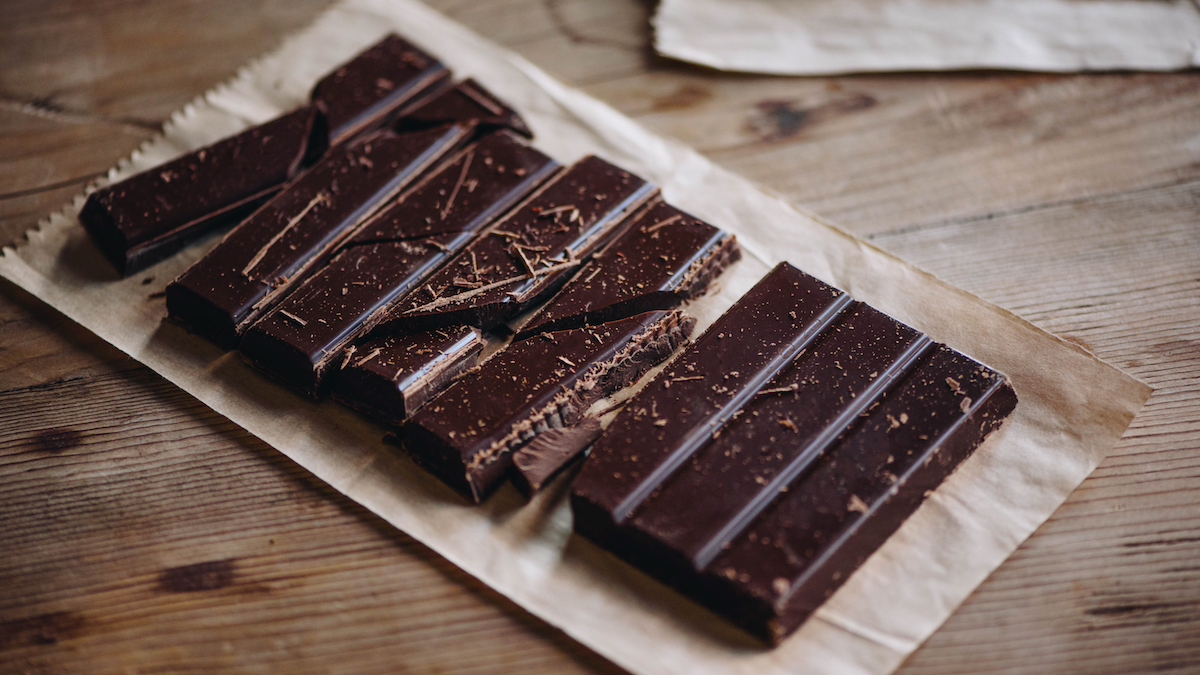
4. Dark Chocolate
Cacao gives us energy due to its sugar content but also because it contains caffeine. The darker the chocolate the more the caffeine content, with one dark chocolate square containing 24mg - that's 1/4 of caffeine in the average 200ml mug of coffee.
If you have four squares, you have had the equivalent of a cup of coffee and it has the same five-hour window within which to be metabolised. This includes energy bars with dark chocolate coating, dark chocolate brownies, as well as cakes and dark drinking chocolate.
5. Insufficient hydration (water)
Studies show that drinking more water makes you feel calmer, improves cognitive performance and improves your mood. Hot water is soothing, and a mug of hot water helps reduce stress and boosts your mood, so its a win-win.
Ideally you should have a glass of water with every meal. Caffeine-free herbal teas, especially those containing chamomile, valerian root, liquorice root, rooibos and ginger are also great before bed. A glass of hot or cold unsweetened soya or nut milk (no sugar here and the high protein aids sleep) is also a great sleep aid.
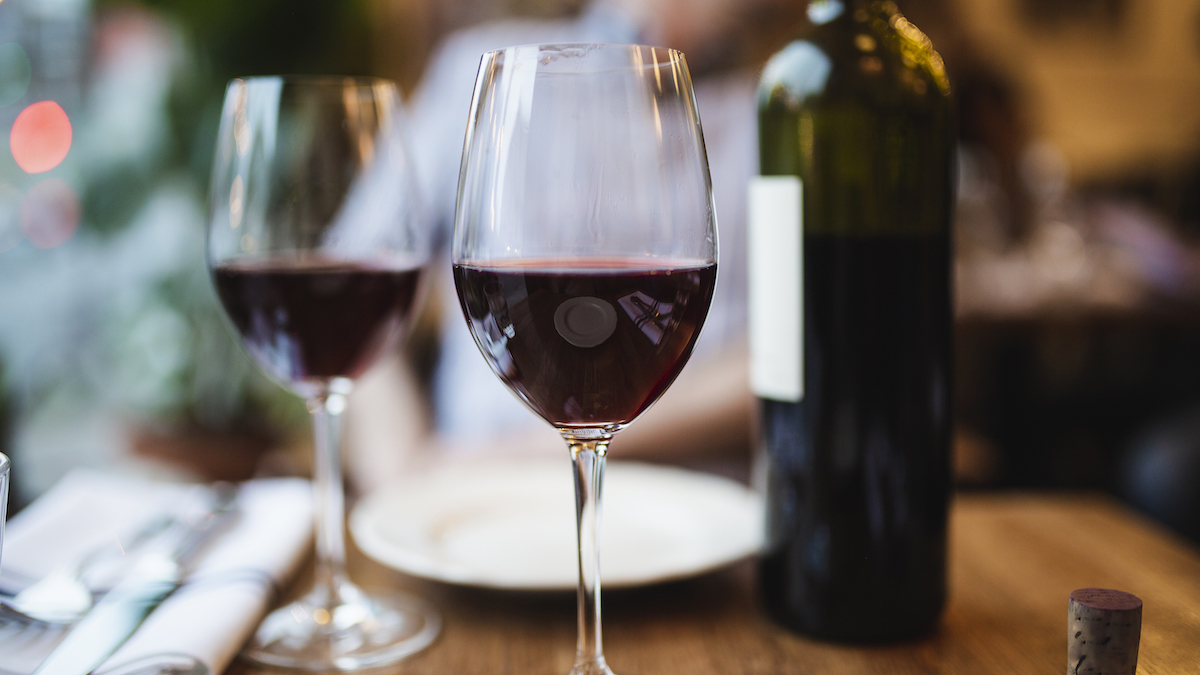
6. Alcohol
As we learned in our feature on alcohol and sleep, booze disrupts sleep for everyone, and drinking more alcohol on a regular basis does not reduce its effects - this is a classic sleep myth. Alcohol disrupts the Glutamate to Gaba (inhibitory and excitatory chemicals in the brain) balance in the brain.
There are two phases of sleep: SWS (slow wave sleep) and REM (rapid eye movement sleep). Alcohol helps you to rapidly enter SWS but disrupts REM sleep, so you fall asleep faster but have less restful and more disrupted sleep. The 10-3-2-1-0 sleep method recommends cutting out all alcohol three hours before bed.
How to sleep better at night
There's no quick fix foods for better sleep: maintaining a healthy diet is the best way to eat for more restful nights. However, the fixes above act as a great starting point. Now that you have a better idea of how alcohol, sugar and caffeine affect your sleep, it's time to look at some other quick ways to boost your sleep at night. One of the best ways is to stick to a consistent sleep and wake-up time, and to make sure you fully relax before bed with a proper bedtime routine.
Also ensure you are sleeping on the best mattress for your body type and sleep needs, as an uncomfortable bed can lead to broken sleep as you'll keep waking up to find a comfy new sleeping position. A mattress topper is a good alternative for making older beds softer or firmer as needed.
If you find it hard to rise and shine in the morning, consider investing in a wake-up light to bathe your bedroom in cheery sunshine - it's a far nicer way to wake up compared to a blaring alarm clock.
Save up to $750 on mattresses at Nolah Sleep
We’ve teamed up with Nolah to offer you an exclusive discount of up to $750 off memory foam and hybrid mattresses (with code TRNOLAH). Each model is made with cutting-edge mattress tech to help you sleep cooler and to relieve pressure on your back and hips. You’ll get free shipping and a 120-night trial too.
DISCLAIMER

TechRadar created this content as part of a paid partnership with Nolah Sleep. The contents of this article are entirely independent and solely reflect the editorial opinion of TechRadar.
References:
- St-Onge, M.P., Roberts, A., Shechter, A. and Choudhury, A.R., 2016. Fiber and saturated fat are associated with sleep arousals and slow wave sleep. Journal of Clinical Sleep Medicine, 12(1), pp.19-24.
- Statland, B.E. and Demas, T.J., 1980. Serum caffeine half-lives: healthy subjects vs. patients having alcoholic hepatic disease. American journal of clinical pathology, 73(3), pp.390-393.
- Huang, T.T., Lai, J.B., Du, Y.L., Xu, Y., Ruan, L.M. and Hu, S.H., 2019. Current understanding of gut microbiota in mood disorders: an update of human studies. Frontiers in genetics, 10, p.98.
- Pross, N., Demazières, A., Girard, N., Barnouin, R., Metzger, D., Klein, A., Perrier, E., & Guelinckx, I. (2014). Effects of changes in water intake on mood of high and low drinkers. PloS one, 9(4), e94754. https://doi.org/10.1371/journal.pone.0094754
- Thout, S.R., Santos, J.A., McKenzie, B., Trieu, K., Johnson, C., McLean, R., Arcand, J., Campbell, N.R. and Webster, J., 2019. The Science of Salt: Updating the evidence on global estimates of salt intake. The Journal of Clinical Hypertension, 21(6), pp.710-721.
This article is part of TechRadar's Sleep Awareness Week 2022 celebration (running until Saturday 19 March), a week-long look at all things slumber. We'll be bringing you proven techniques and tips to help you sleep better, and have rounded-up all the top-rated tech to transform your sleep.
Laurentia is a Biomedical Scientist, neuroscience, mental health, and nutrition academic, writer and creative. She is also a marathon runner, yoga teacher, podcaster and poet who is motivated towards promoting happiness and health.
